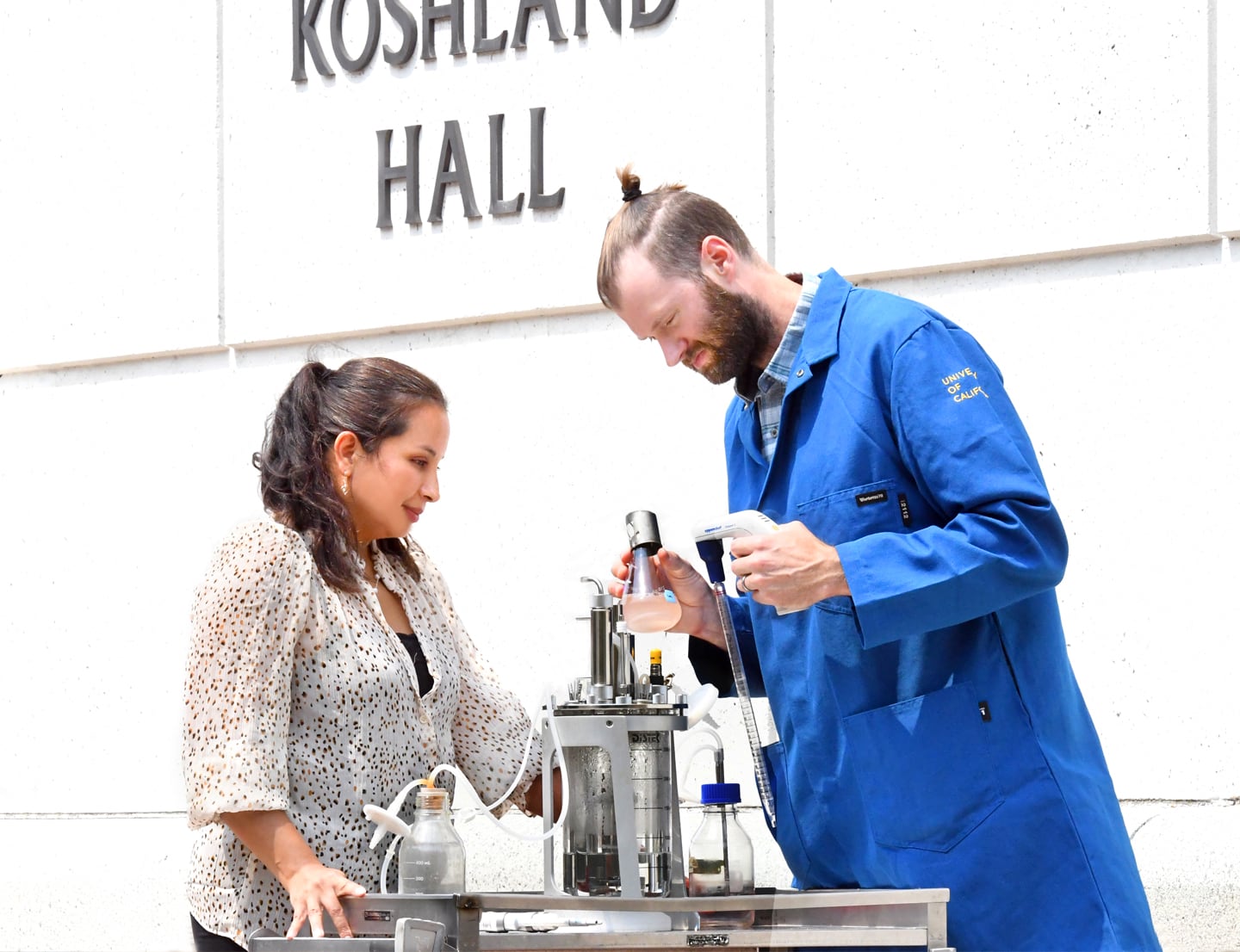FAQ
Frequently Asked Questions
Who can apply to the Bakar Fellows Program?
We offer programs that serve UC Berkeley faculty, graduate and postdoctoral students, project scientists, and undergraduate students. Additionally, UCSF faculty can apply for joint projects with UC Berkeley faculty.
UC Berkeley faculty, as well as UCSF faculty involved in joint projects, are eligible to apply for the Bakar Award (formerly called Spark Award) or AIC-Bakar Award. Those who are accepted into these programs become Faculty Fellows. Please click here to learn more about our award offerings for Faculty Fellows.
Graduate students, postdocs or project scientists participating in a Bakar Fellows-funded research project are designated as Innovation Fellows. Faculty members submit the Bakar Award or AIC-Bakar proposal and identify the prospective Innovation Fellows as part of the proposal. Please click here to learn more about how to get involved as an Innovation Fellow.
UC Berkeley undergraduate students can apply each semester to work in a Bakar Faculty Fellow’s lab. Students who are admitted to the program become Ignite Scholars. The specific majors and experience levels needed for each project vary and are detailed in the project description, which is posted in the Discovery Hub during each application cycle. For more information about the Bakar Ignite Scholars Program, please click here.
Do you have lab space I can use?
The Bakar Fellows Program does not provide physical facilities or lab space. Research will be conducted in the PIs research lab.
Are your programs open to faculty and students not affiliated with UC Berkeley?
UCSF faculty can apply for joint projects with UC Berkeley faculty, and UCSF graduate students, project scientists, and postdoctoral researchers participating in these projects are welcome to join the program as Innovation Fellows.
All other current opportunities are limited to faculty and students affiliated with UC Berkeley.
Are Bakar Fellows and Bakar Bio Labs the same thing?
No, the Bakar Fellows Program and Bakar Bio Labs are distinct programs, though they share a common goal of supporting the translation of critical research into successful startups.
The Bakar Fellows Program is a UC Berkeley campus-based program that focuses on supporting the commercialization of academic research, helping faculty and students translate their innovations into real-world applications.
In contrast, Bakar Bio Labs is a biotech incubator affiliated with UC Berkeley but does not require a UC Berkeley connection to participate. It provides physical lab space and resources to established startup companies, which may include those founded by former Bakar Fellows.
While both programs aim to foster innovation and entrepreneurship, the Bakar Fellows Program is specifically focused on academic research and its commercialization, whereas Bakar Bio Labs serves as a physical incubator for startup companies.
What academic areas are considered STEM+?
Bakar Faculty Fellows bring expertise from a wide array of academic disciplines, including traditional STEM fields like physics, chemistry, and biology. However, as the demand for interdisciplinary technologies grows, this could allow for participation from fields such as architecture, economics, and social sciences. The key consideration is whether your project involves a technology that has the potential for commercialization and requires the funding and resources our program offers. In addition, your project should address a critical societal challenge—whether in areas like climate change, medicine, agriculture, or others.
If you’re unsure whether your academic discipline aligns with the program, please don’t hesitate to reach out to us at bakarfellows@berkeley.edu for clarification. We’re happy to discuss your specific project and its fit with our mission.
What is the Spark Award?
The Spark Award, now called the Bakar Award, is one of our award offerings for Faculty Fellows. Funding from the this award may be used for a wide range of qualifying projects, including medicine, diagnostics, agriculture, and more. Please click here to learn more about the eligibility requirements for a Bakar Award.
What is the Bakar Award?
The Bakar Award was previously know as the Spark Award, and is one of our award offerings for Faculty Fellows. Funding from this award may be used for a wide range of qualifying projects, including medicine, diagnostics, agriculture, and more. Please click here to learn more about the eligibility requirements for a Bakar Award.
What is the AIC-Bakar Award?
The AIC-Bakar Award is one of our award offerings for Faculty Fellows specifically for climate-related projects. The award is funded by the Academic Innovation Catalyst in partnership with the Bakar Fellows Program. Please click here to learn more about eligibility requirements for the AIC-Bakar Award.
What’s the difference between Faculty Fellows, Innovation Fellows, and Ignite Scholars?
Faculty Fellows are UC Berkeley and UCSF Faculty who have received a Spark Award (now called a Bakar Award), AIC-Bakar Award, or Bakar Prize.
Innovation Fellows are graduate students, postdoctoral students, or project scientists working on projects with Faculty Fellows who have received any of the above awards.
Ignite Scholars are undergraduate students who apply separately to work in a Bakar Fellow’s Lab.
Please click here for a more in-depth overview of each of our fellowship programs.
Is the Bakar Prize still accepting applications?
The Bakar Prize was one of our former award programs for Bakar Faculty Fellows in need of additional funding. The Bakar Prize is no longer accepting applications.
I have a climate related project. Can I apply to both the Bakar Award and AIC-Bakar Award?
There is no separate application process for these awards. Both awards are considered in the same call, and climate projects still apply with the same pool of applicants. Climate-related projects can be selected for funding under either award.

Bakar Fellows
Meet our Fellows
Our Bakar Fellows have been bringing innovative research toward commercialization since 2012, contributing to the rich entrepreneurial ecosystem at UC Berkeley and beyond.